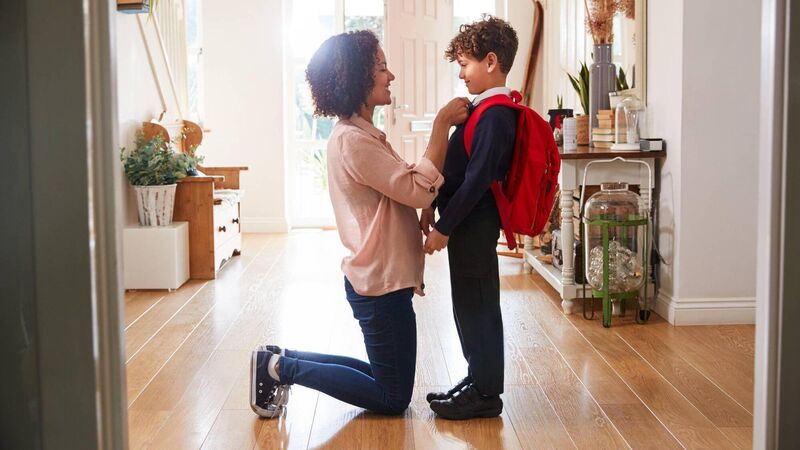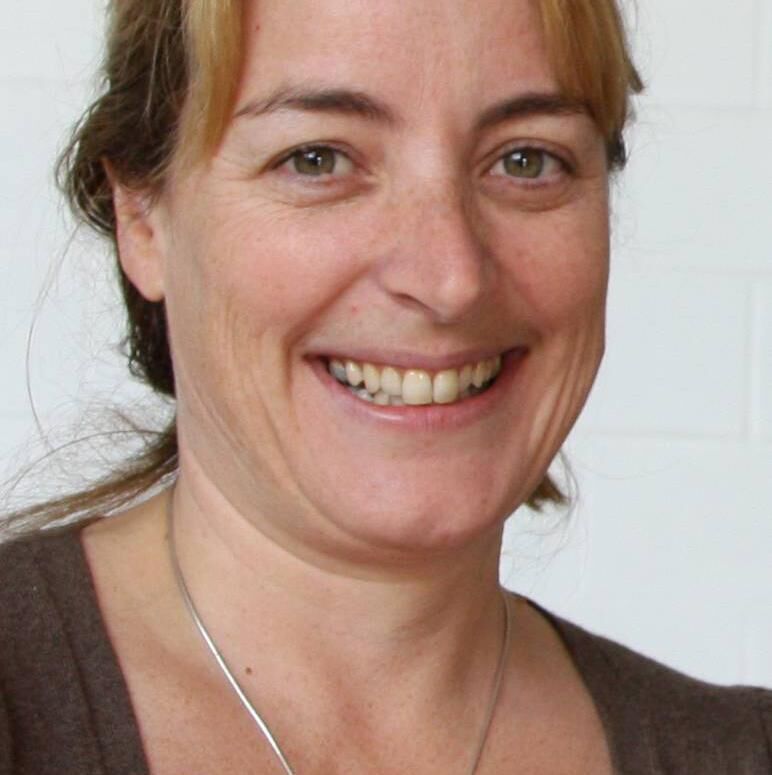Nine things kids want parents to know about going back to school

Pic: iStock
Returning to school is one of the biggest re-adjustments of a child’s year, and never more so than if they’re starting primary or second. But just going from the mellow summer holidays to the demands of school is a big transition.
Here, three experts discuss what our children need their parents to know to get them off to a good start.

I may be anxious
Anxiety is normal when things are changing, says clinical psychologist Jillian Doyle.
Back-to-school holds many transitions. “Some children will be going to a new school, as a junior infant, or because the family has moved, or they’re starting secondary. Others have exams coming up, or they’re going into second class and will have a later finish, or they’re starting senior cycle.”
Anxiety is a functional emotion, says Doyle. “It gets us to avoid threat. The threat might be social: perhaps something has happened in your child’s friend group that’s throwing up a worry for them.”
Children’s anxiety shows up in different guises — tummy ache, headache, sleep disturbances — and she recommends helping your child name their anxiety to validate it. “Share your own experience: ‘Gosh, do you remember when Mummy started her new job and she was so anxious?’” Or print off a visual ‘anxiety thermometer’ and encourage your child to say where they are on the thermometer around returning to school.
Doyle also urges parents to tune in to their back-to-school anxiety: “Are you stressed about your child’s anxiety? Or about the knock-on effect on your family of changed routines?”
I might act out (it’s not personal)
Children might isolate themselves, be snappy, or have more tantrums. “If challenging behaviours escalate, check in, not when they’re acting up but at a quieter time. Ask, ‘Is there anything I can do to support you with this?’ With younger children, you might have to direct it a bit more,” says Doyle.
Incorporate some family quiet time, introduce breathing techniques, read with children, or get them a mindful colouring book. Whatever activity, do it with them.”

I’ll be exhausted
National Parents’ Council CEO Áine Lynch says it is helpful if parents think about how they felt when they started a new job — or when they return to work post-holiday — so they can fully relate to how children feel with school starting up.
“When an adult starts a new job, it takes a while for the body and brain to get used to it. It can be all-consuming and exhausting. Think what it’s like going back to work after a two-week holiday: It takes adjusting. For children who’ve been on a two- to three-month holiday, it’s a huge re-adjustment returning to school.”
Trying to find their way through all the newness — new classmates, friends, teachers — requires a big effort from children. “It’s normal they come out of school exhausted in the first days and weeks.”
Please don’t quiz me
Your child has been through the wringer: playing, learning, making new friends, talking to teacher. They need to process what went on during the day, says Lynch. “Some children will want to say aloud everything that happened. Others won’t: they haven’t worked it out in their own head yet.”
This doesn’t mean parents shouldn’t ask, ‘How was your day?’ “But there’s a difference between relaxed conversation and meeting the needs of parents who want to know everything that happened since the child left them that morning.”
Remember, ‘What did you do today?’ is a big question. “It’s difficult to answer. It’s like: Where do I even start? What do you want to know? In what depth? But parents get frustrated: they say ‘I asked him what he did’ and he said ‘nothing’.
Better, she says, to go at the child’s pace.
Ask smaller, more specific questions: What was the best thing that happened today? Who did you play with at break-time? Who did you sit next to? “These questions are easier for the child to answer: they can give a real glimpse into a child’s day.”
I need routine
When back-to-school holds an element of stepping into the unknown, children don’t feel in control, they feel unsafe, says Doyle.
“Routine gives them a feeling of being in control, of being safe. It gives a sense of scaffolding: they know what to expect in one area of their life as they undergo a period of change in another.”
She recommends starting right away to bring back school-year bedtimes and mealtimes and gently remind children of limits on treats and screen use.
Bring up how their weekend routine will change, too: ‘You’re going back to soccer soon: won’t that be exciting?’ “Then these changes don’t come as a shock,” says Doyle.
I need real downtime
Resist getting caught up in a cycle of busyness. Summer was all about downtime: don’t let it go entirely, advises Doyle.
“Break it into daily downtime —fresh air in the garden, a walk with parents or playing on the green — and weekend downtime. Don’t over-schedule weekends: for most children, one or two extracurricular activities weekly is loads.”
Doyle also urges downtime from screens. “Primary schoolchildren should definitely have screen-free days in the week. And value boredom for them; it’s an opportunity for creativity. When children are over-scheduled, imagination suffers.”
I need you to listen, not try to fix things
We have become much more protective as a society, says Lynch, but if parents try to fix a child’s problems, the child isn’t learning skills to develop in to a functioning adult.
“Friendship, for example. It’s a big issue for children at school. Suppose they haven’t made any friends or haven fallen out with their best friend. It can be the most heartbreaking thing to hear as a parent.”
Parents must, however, resist any impulse to ‘fix’ things. “Instead, explore with the child what has happened. Explore how they feel about that.
“Also, explore the possible solutions; children will have some of the best options within them. Of course, younger children may not be aware of all they can do; parents can then [suggest] more options.”
It is not about parents managing the situation and thereby the child not learning anything, says Lynch. “It’s about parents supporting the child to manage it.”
I’ll need you to be the grown-up
Dr Ray O’Neill, assistant professor in psychotherapy at Dublin City University, says back-to-school can be easier for everybody if parents are mindful that:
Leaving things to the last minute is not a good strategy. “Model organisation — having items like the school bag ready the evening before makes the morning much easier for everyone.”
Trying not to ‘catch’ your child’s anxiety. “Anxiety’s the most contagious emotion. It can be useful as long as it’s working with other emotions in the brain —when it has a monopoly, everything goes out the window. “If your child can’t find their French homework, don’t add to it by communicating worry and upset yourself.”
Younger primary children need lots of parental guidance and support, but as children move into senior years and particularly when they’re teens, you need to encourage co-piloting.
“Children should be taught the family is a system, that one person not pulling their weight has repercussions for the others.
“So if they get up late and can’t find their shoes, and everyone’s looking for the shoes, then everyone’s late.”
I need you to be open with me
O’Neill encourages parents to share their fallibility, humility and humanity with children. “With younger children, it’s important parents lead from the front; when they’re older, it’s important to lead from the side, shoulder-to-shoulder.
“Encourage teens to work alongside you, so they’re not pushing or pulling you, and nor are you doing so with them.”
When a parent is honest about their vulnerability, insecurity, or doubt, O’Neill says it can bring out the best in children.
“Your child says, ‘I’ll do my geography homework in the morning’. And you say, ‘Well, that makes me worry – is it really worth spending another half-hour on your PlayStation if it adds to the pressure in the house?’”
He says the more we can model ‘we’re all in it together’, the better.
CONNECT WITH US TODAY
Be the first to know the latest news and updates





